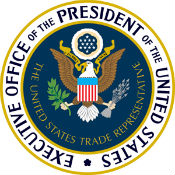
Use of the emoji has been much higher than normal on Twitter since Beyoncé released her latest album and accompanying film. The post Beyoncé’s Lemonade Is Making the Lemon Emoji Very Popular appeared first on WIRED.
Source: Wired.com Top Stories
Unrelated to the whiskey.

Use of the emoji has been much higher than normal on Twitter since Beyoncé released her latest album and accompanying film. The post Beyoncé’s Lemonade Is Making the Lemon Emoji Very Popular appeared first on WIRED.
Source: Wired.com Top Stories

As other major tech companies stumble, Facebook is golden. And, for that, you can thank Mark Zuckerberg. The post Why Facebook Is Killing It—Even When Nobody Else Is appeared first on WIRED.
Source: Wired.com Top Stories
 Earlier this year Paramount Pictures and CBS Studios filed a lawsuit against the makers of a Star Trek inspired fan film, accusing them of copyright infringement.
Earlier this year Paramount Pictures and CBS Studios filed a lawsuit against the makers of a Star Trek inspired fan film, accusing them of copyright infringement.
The dispute centers around the well-received short film Star Trek: Prelude to Axanar and the planned follow-up feature film Anaxar.
Among other things, the Star Trek rightsholders claim ownership over various Star Trek related settings, characters, species, clothing, colors, shapes, words, short phrases and even the Klingon language.
The makers of the fan-spinoff responded to several of the allegations last month. Among other things, they argued that the Klingon language is not copyrightable because it’s not more than an idea or a system. They therefore asked the court to dismiss or strike the copyright claims in question.
Paramount and CBS disagreed. In their reply the rightsholders called the argument absurd and among other things, they pointed out that the language system is not very useful if there are no real Klingons to communicate with.
Considering the stakes, the lawsuit has drawn the attention of the Language Creation Society (LCS), a non-profit that aims to promote the art and craft of language creation. The group submitted their opinion to the court yesterday, siding with the makers of the fan-film.
In their amicus brief, which actually uses Klingon language, the LCS points out that it’s understandable that Paramount Pictures feels that they own the language. After all, they commissioned Linguistics professor Marc Okrand to create some of the language thirty years ago.
However, this doesn’t mean that the copyright claims hold ground.
“Feeling ownership and having ownership are not the same thing. The language has taken on a life of its own. Thousands of people began studying it, building upon it, and using it to communicate among themselves,” the LCS notes.
“As the Klingon proverb says, we succeed together in a greater whole,” the brief adds, with pro-bono attorney Marc Randazza writing in Klingon.
The brief, partially in Klingon
The Language Creation Society lists many examples of how Klingon has evolved, and it specifically disputes Paramount’s earlier claims that there are no human beings who communicate using the Klingon language.
“In fact, there are groups of people for whom Klingon is their only common language. There are friends who only speak Klingon to each other. In fact, at least one child was initially raised as a native speaker of Klingon,” LCS writes.
“Now that Klingon has become an actual living language, Paramount seeks to reach out and stake its ownership by using copyright law. But, as ‘Klingons do not surrender’, neither do those who speak Klingon,” they add.
As such, Paramount should not be allowed to claim copyright over the entire Klingon language, both in written and spoken form. The language is a tool for people to communicate and express ideas, something people should be allowed to do freely under U.S. law, LCS argues.
Klingon alphabet (image: wiki)
If Paramount is allowed to claim copyright over the language, they would be able to silence the free expression of thousands of people, many of which helped it to evolve in recent years.
“Klingon gave Star Trek characters convincing dialogue. But, it broke its chains and took on a life of its own – a life that the Copyright Act has no power to control. Klingon, like any other spoken language, provides tools and a system for expressing ideas,” LCS writes.
“No one has a monopoly over these things, effectively prohibiting anyone from communicating in a language without the creator’s permission. This is not permitted by the law, and it is not why the Constitution allows Congress to provide copyright protection,” they add.
Summing up, the Language Creation Society sides with the makers of the Star Trek spin-off, asking the court to dismiss the copyright claims over the Klingon language, so it can be used freely and continue to evolve.
It is not up to the California federal court to decide whether the ‘Klingons’ can prevail or not.
Source: TF, for the latest info on copyright, file-sharing, torrent sites and ANONYMOUS VPN services.
Source: TorrentFreak
 Every year the Office of the United States Trade Representative (USTR) publishes its Special 301 Report highlighting countries that aren’t doing enough to protect U.S. intellectual property rights.
Every year the Office of the United States Trade Representative (USTR) publishes its Special 301 Report highlighting countries that aren’t doing enough to protect U.S. intellectual property rights.
In 2016 the report sticks to a tried and tested format, with countries such as China, Russia, India and Ukraine all making the Priority List once again. However, just as the USTR wasn’t afraid to place Canada on the Watch List several years ago, this year it has added another ally.
Situated in the heart of Europe (although not part of the Union), Switzerland has long-standing ties with the United States and has acted as the protecting power between the U.S. and former foes Iran and Cuba. Nevertheless, when it comes to protecting copyright the USTR didn’t hesitate to add Switzerland to the Watch List in 2016.
“Generally speaking, Switzerland broadly provides high-levels of IPR protection and enforcement in its territory. Switzerland makes important contributions to promoting such protection and enforcement internationally, including in bilateral and multilateral contexts, which are welcomed by the United States,” the USTR writes in its assessment.
“However, the decision to place Switzerland on the Watch List this year is premised on U.S. concerns regarding specific difficulties in Switzerland’s system of online copyright protection and enforcement.”
Although the USTR doesn’t go into much detail, the key problem that the United States has with Switzerland surrounds the so-called ‘Logistep Decision‘. Anti-piracy outfit Logistep built a reputation in the latter half of the last decade for providing tracking services for copyright trolls operating in Europe and the UK. However, things didn’t go entirely to plan.
In 2010 following several years of legal action, the Swiss Federal Supreme Court ordered Logistep to stop harvesting the IP addresses of file-sharers. The Court ruled that IP addresses amount to private data, a decision that effectively outlawed the tracking of file-sharers in privacy-conscious Switzerland.
This apparent lack of protection for rightsholders is unacceptable, the USTR says.
“Six years have elapsed since the issuance of a decision by the Swiss Federal Supreme Court, which has been implemented to essentially deprive copyright holders in Switzerland of the means to enforce their rights against online infringers; enforcement is a critical element of providing meaningful IPR protection,” the report reads.
According to the USTR, since 2010 Switzerland has also become an increasingly popular host country for many pirate sites, a position highlighted in the 2015 Notorious Markets review.
While the USTR says that it welcomes the steps being taken by Switzerland to address its concerns, the tone of the United States suggests there is somewhat of a mountain to climb before the country gets a clean bill of health.
“[M]ore remains to be done and the United States continues to encourage the Swiss government to move forward expeditiously with concrete and effective measures that address copyright piracy in an appropriate and effective manner, including through legislation, administrative action, consumer awareness, public education, and voluntary stakeholder initiatives,” the USTR writes.
Canada
After being on the Watch List for some time now, Canada did not do enough in 2015 to get back into favor with the U.S.
While welcoming Canada’s amendment to its Copyright Act which extended sound recording protection to 70 years from date of recording, the U.S. has little other praise for its northern neighbor.
“[T]he United States continues to urge Canada to fully implement its commitments pursuant to the WIPO Internet Treaties and to continue to address the challenges of copyright piracy in the digital age,” the USTR writes.
Going on to condemn Canada on everything from counterfeit goods to pharmaceuticals and patents, there was not even a passing reference in the report to the long called for notice-and-notice anti-filesharing regime implemented by Canada in 2015.
Other countries with Internet piracy issues
India is criticized on a number of fronts, with the USTR calling for the implementation of notice-and-takedown procedures, statutory damages for infringement and the introduction of effective anti-camcording legislation.
Despite noting that anti-piracy legislation is evolving in Russia, the USTR saw no reason to take the country off the Priority List in 2016. Interestingly the USTR’s report praises the fact that “a Russian court shut down Rutracker.org”, when in fact the site was only blocked and remains fully operational today. Nevertheless, it appears that court orders are not enough for the United States.
“Issuing injunctions against infringing websites does not address the root of the problem; Russia should be investigating and prosecuting the operators of such sites. The overall number of raids, criminal charges, and convictions have declined in recent years,” the report reads.
Finally, Ukraine remains on the Priority List in 2016.
“With respect to improving the government’s response to online infringement, several attempts at legislative reform appear to have stalled,” the USTR notes.
“As highlighted in the 2015 Notorious Markets List, Ukraine continues to host some of the largest pirate sites in the world serving IP infringing content to a global audience.”
The full 2016 Special 301 Report can be downloaded here (pdf)
Source: TF, for the latest info on copyright, file-sharing, torrent sites and ANONYMOUS VPN services.
Source: TorrentFreak

SpaceX is already pretty close to having a lot of the tech they need for an uncrewed mission to Mars. The hardest part will be landing a craft on the big, red rock. The post SpaceX’s Plan to Reach Mars by 2018 Is … Actually Not That Crazy appeared first on WIRED.
Source: Wired.com Top Stories

Ever wonder what emoji faces would look like if we tried to make them IRL? Here’s actress Bella Thorne’s take on some of the most popular emojis out there. The post Bella Thorne: Actor, Writer, Really Good Emoji Impersonator appeared first on WIRED.
Source: Wired.com Top Stories

Nokia got out of the cell phone market and is doing just fine, thank you. So why is it buying a company that makes internet-connected scales, of all things? The post Hey, Nokia Isn’t Just a Company That Used to Make Phones appeared first on WIRED.
Source: Wired.com Top Stories

The new IMAX documentary A Beautiful Planet relies on shooting with digital cameras. The post Get Ready for A Beautiful Planet, a Jaw-Dropping IMAX Movie From Space appeared first on WIRED.
Source: Wired.com Top Stories
 This special episode of STEAL THIS SHOW features Benji Rogers of the direct-to-fan music platform, PledgeMusic.
This special episode of STEAL THIS SHOW features Benji Rogers of the direct-to-fan music platform, PledgeMusic.
As we find out, Benji’s an independent musician who founded his platform to offer artists a unique way to engage their fans and super fans, resulting in chart topping albums worldwide.
In 2013, Benji was recognized on Billboard’s 40 Under 40 Power Players list and in 2014 at the MUSEXPO International Music Awards, he won Digital Executive of the Year.
We discuss how Benji’s early days with his band produced the idea for PledgeMusic; just how broken the traditional copyright system is for musicians; and Benji’s big idea: to push music rights into the blockchain, creating a “Fair Trade” for musicians!
—
Steal This Show aims to release bi-weekly episodes featuring insiders discussing copyright and file-sharing news. It complements our regular reporting by adding more room for opinion, commentary and analysis.
The guests for our news discussions will vary and we’ll aim to introduce voices from different backgrounds and persuasions. In addition to news, STS will also produce features interviewing some of the great innovators and minds.
Host: Jamie King
Guest: Benji Rogers.
Produced by Jamie King
Edited & Mixed by Eric Bouthiller
Original Music by David Triana
Web Production by Siraje Amarniss
Source: TF, for the latest info on copyright, file-sharing, torrent sites and ANONYMOUS VPN services.
Source: TorrentFreak

Want a “cop who makes his own rules” show that actually goes beyond its trope? We have a show for you to binge. The post WIRED Binge-Watching Guide: The Shield appeared first on WIRED.
Source: Wired.com Top Stories